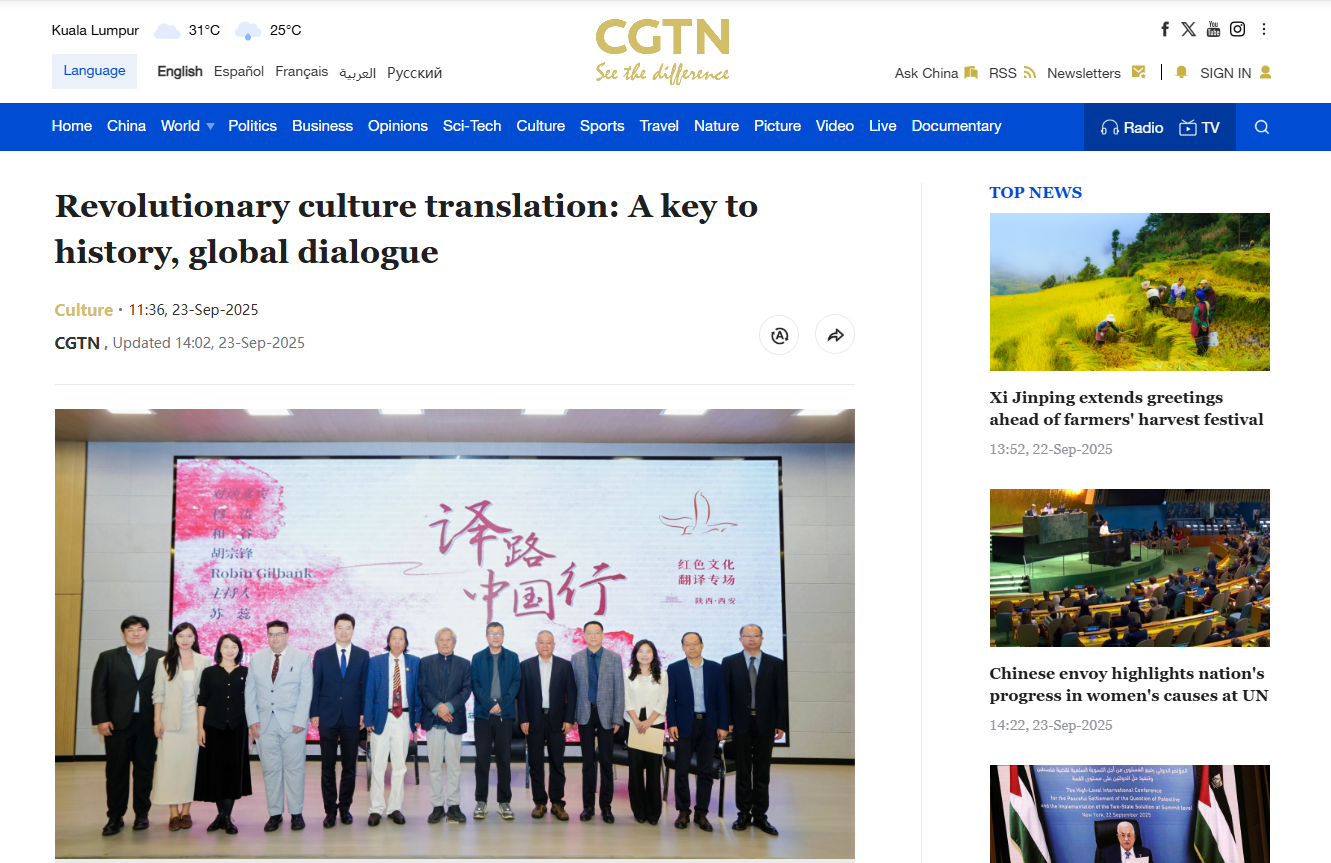
Translators and writers from China and the UK highlighted the vital role of revolutionary culture translation in fostering modern cross-cultural understanding during an event held in Xi'an, the capital of northwest China's Shaanxi Province, on September 21.
The event coincided with the International Day of Peace and marked the 80th anniversary of the victory in the Chinese People's War of Resistance Against Japanese Aggression and the World Anti-Fascist War.
The dialogue featured renowned Chinese writers He Gu and Mu Tao, alongside Hu Zongfeng, president of the Shaanxi Translators Association, and British translator Robin Gilbank. The discussion was moderated by Su Rui, the association's executive vice president.
Writer He drew on his works to elucidate the core of "revolutionary spirit," characterized by a profound sense of sacrifice and a desire for national salvation. He stressed the importance of making revolutionary history tangible and relatable for contemporary audiences.
Providing a historical context, writer Mu reflected on China's cultural reconstruction during the Han Dynasty. He cautioned against stylistic excess in modern writing and translation, advocating for respect for original texts and historical authenticity to ensure effective communication.
Gilbank, drawing from over a decade of experience in Shaanxi, defined the "Yan'an Spirit" not as an abstract concept but as the resilience, innovation and pragmatic optimism of ordinary people. Citing figures like American journalist and writer Agnes Smedley, he illustrated how spirits of optimism, fact-seeking and revolutionary heroism transcend cultural barriers. He encouraged young people to engage directly with history through real-world exploration.
Hu highlighted the distinct historical and regional character of Shaanxi's literature. He detailed the translation team's long-term dedication to sharing local stories, including works by international friends such as American journalist Helen Snow, which helps make the "heartbeat of the Loess Plateau" audible to the world. While acknowledging advances in AI translation, Hu argued that it cannot replace human translators who interpret "with heart" to achieve deep cultural understanding.
The event was jointly organized by the Translators Association of China, the Shaanxi Translators Association and other institutions. It celebrated the power of translation as a tool for cultural exchange and reinforced the importance of mutual understanding in building a more connected world.
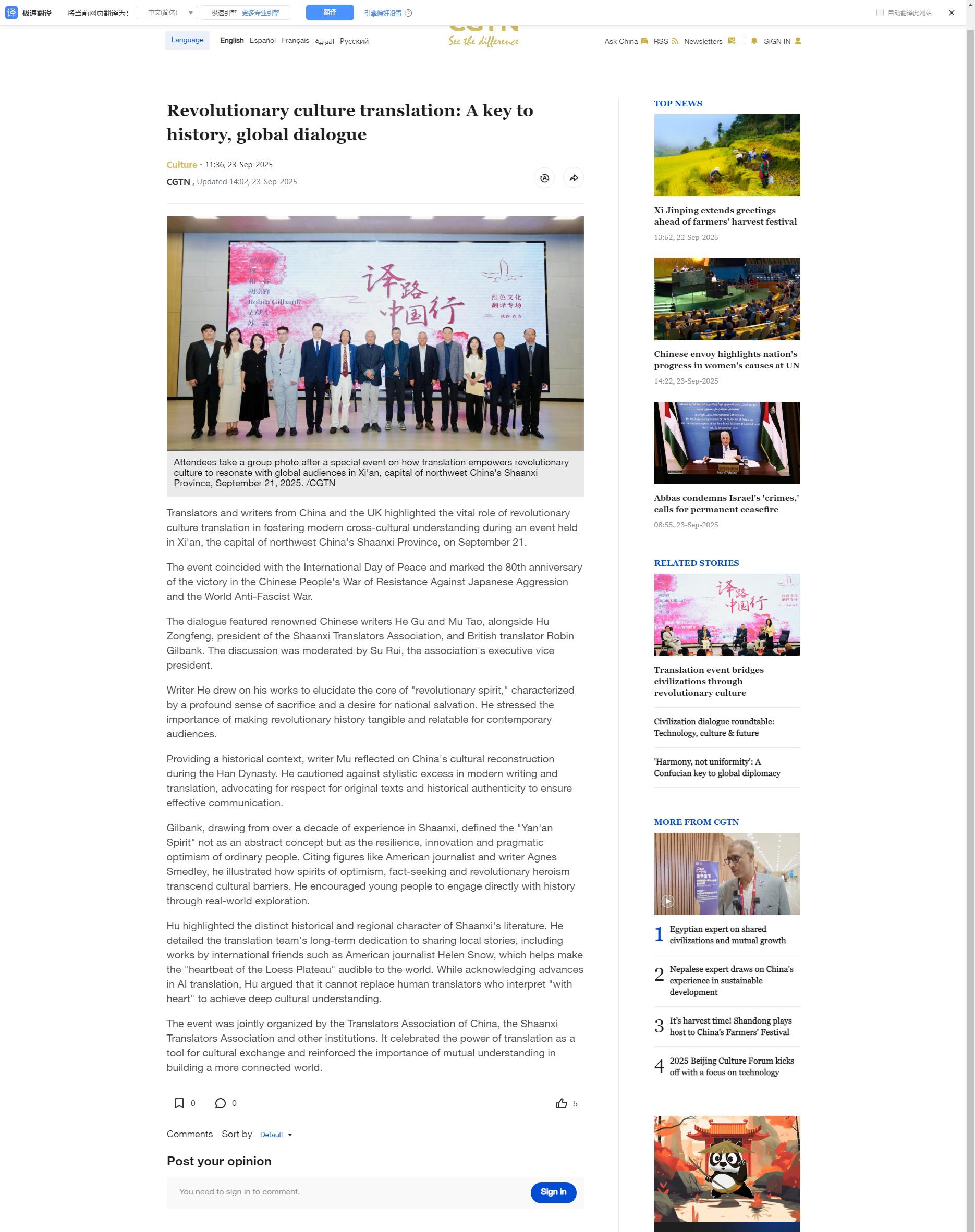
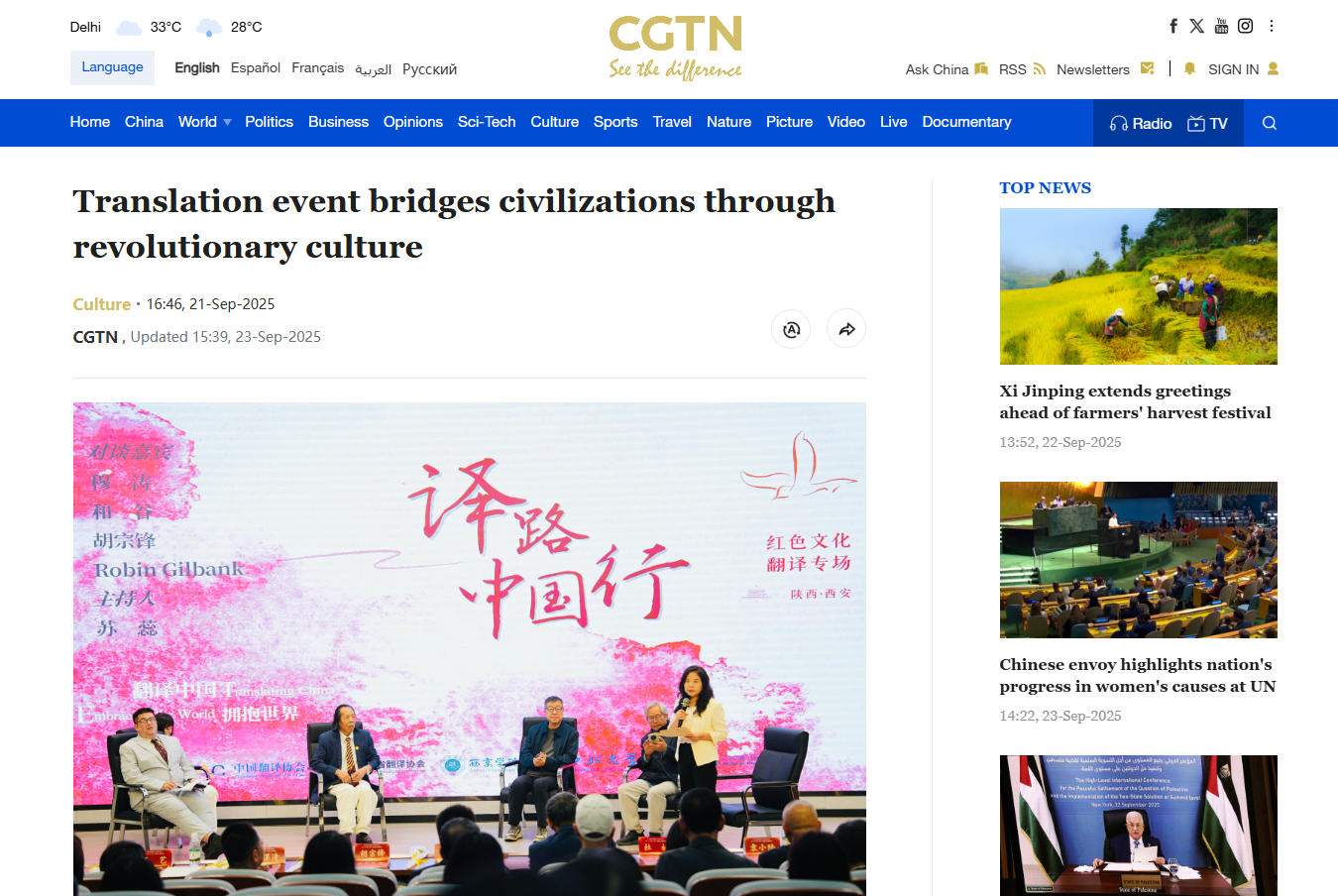
Attendees in a dialogue at a special event on how translation empowers revolutionary culture to resonate with global audiences in Xi'an, the capital of northwest China's Shaanxi Province, September 21, 2025. /CGTN
Attendees in a dialogue at a special event on how translation empowers revolutionary culture to resonate with global audiences in Xi'an, the capital of northwest China's Shaanxi Province, September 21, 2025. /CGTN
A special translation event was held on Sunday in Xi'an, the capital of northwest China's Shaanxi Province, bringing together renowned translators and writers from both China and abroad. The gathering served as a platform to discuss how translation allows revolutionary culture to resonate worldwide, acting as a bridge between peoples.
The special event was organized to commemorate the 80th anniversary of the victory of the Chinese People's War of Resistance Against Japanese Aggression and the World Anti-Fascist War.
Hosted by the Translators Association of China and co-organized by the Shaanxi Translators Association, along with several universities and a research center in the province, the event explored the emergence and evolution of Shaanxi's distinctive revolutionary culture, and how this heritage can be translated for global audiences. Participants engaged in in-depth discussions on articulating the contemporary spirit and global expression of this cultural narrative.
Distinguished participants included renowned Chinese translators and writers He Gu, Mu Tao, and Hu Zongfeng, as well as British translator and expert in English and American literature Robin Gilbank.
Drawing on their extensive experience, they shared insights highlighting the vital role of translation in preserving cultural memory and fostering cross-cultural appreciation.
By focusing on revolutionary culture in Shaanxi – a province deeply rooted in revolutionary history – the event underscored ongoing efforts to share China's stories with a global audience.
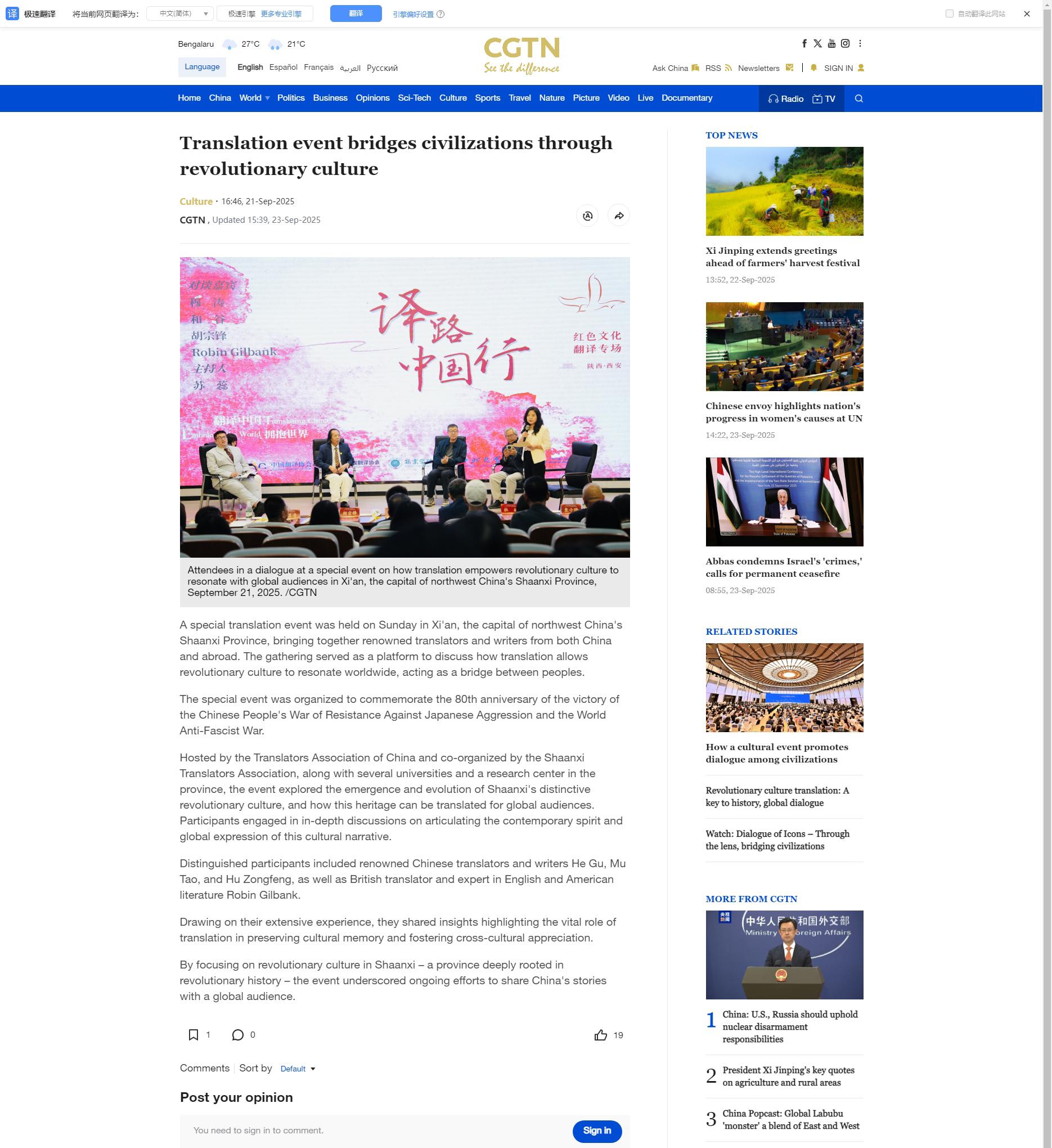
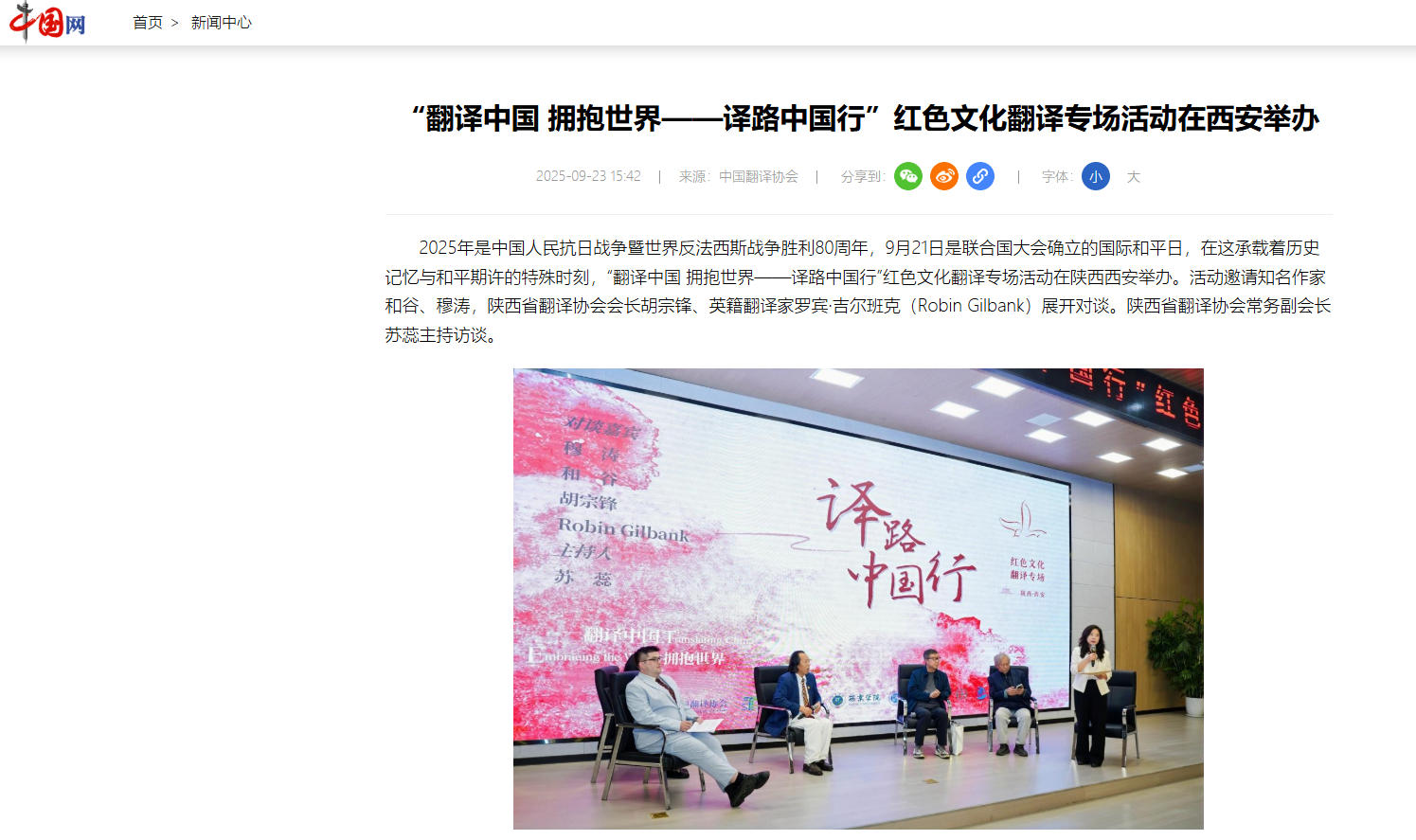
2025年是中国人民抗日战争暨世界反法西斯战争胜利80周年,9月21日是联合国大会确立的国际和平日,在这承载着历史记忆与和平期许的特殊时刻,“翻译中国 拥抱世界——译路中国行”红色文化翻译专场活动在陕西西安举办。活动邀请知名作家和谷、穆涛,陕西省翻译协会会长胡宗锋、英籍翻译家罗宾·吉尔班克(Robin Gilbank)展开对谈。陕西省翻译协会常务副会长苏蕊主持访谈。
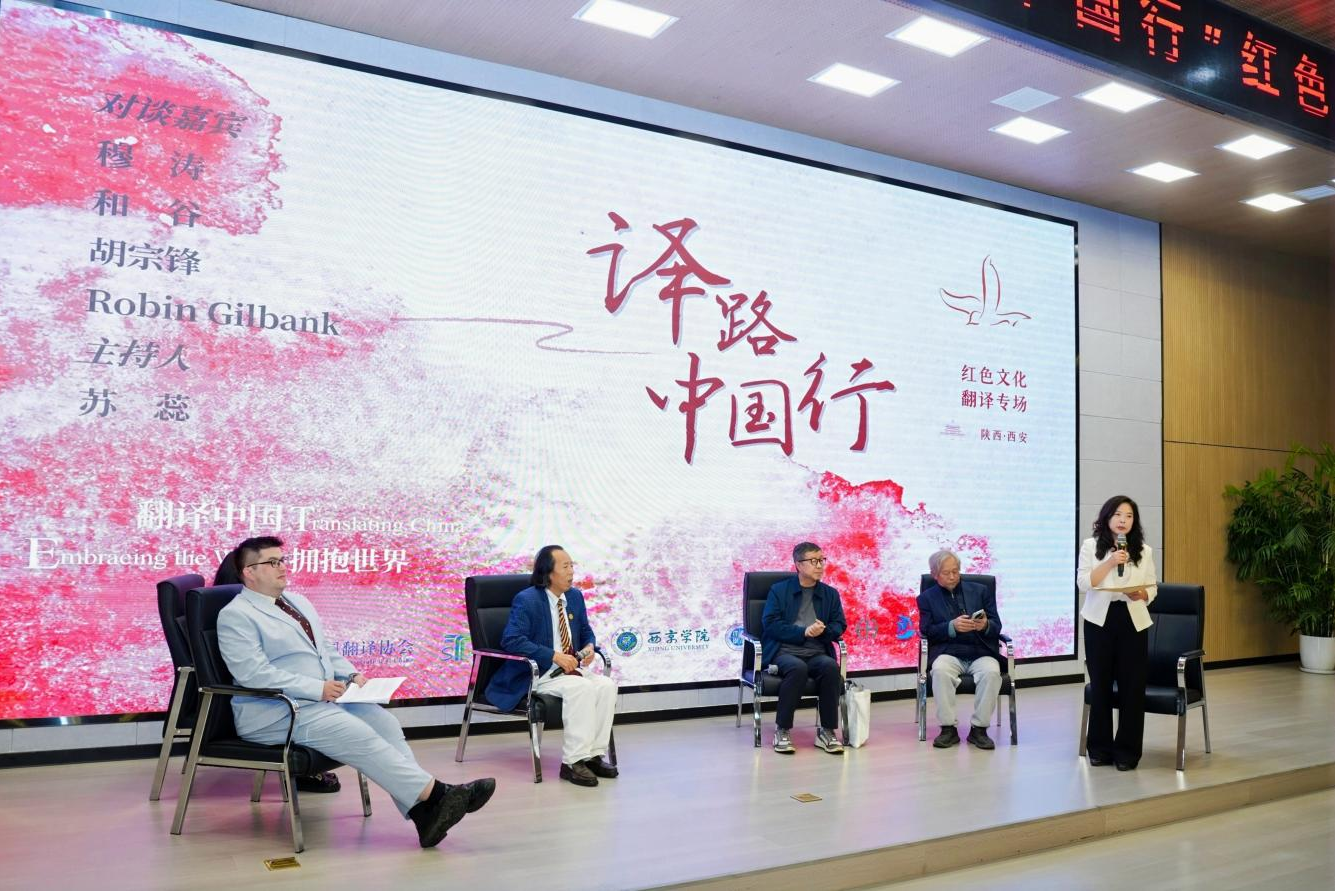
访谈现场
书写有温度的革命精神 红色文学的历史叙事与当代价值
和谷以其红色题材著作《照金往事》为切入点,阐释照金精神的三个核心内涵:一是对共产主义理想的坚定信仰,二是个体生命与时代同频的不怕牺牲精神,三是救亡图存的生存意识与民族解放的强烈诉求。照金精神与延安精神一脉相承,成为新中国诞生历程中不可或缺的精神伏笔。
谈及创作转型,和谷提到其另一部作品《红色神府》。这部作品跳出传统红色题材的宏大叙事框架,转而以具体的人物故事与细节片段为载体,让革命历史变得可感可触。普通农妇为保护群众英勇跳崖、饱受围剿的革命者在绝境中自救等故事,唤起了人们对革命历史的真实情感和共鸣。和谷始终以田野调查为根基,既承袭延安时期作家的现实主义传统,又融入现代跨媒介叙事手法,将红色精神以更具温度的方式传递给当代人。
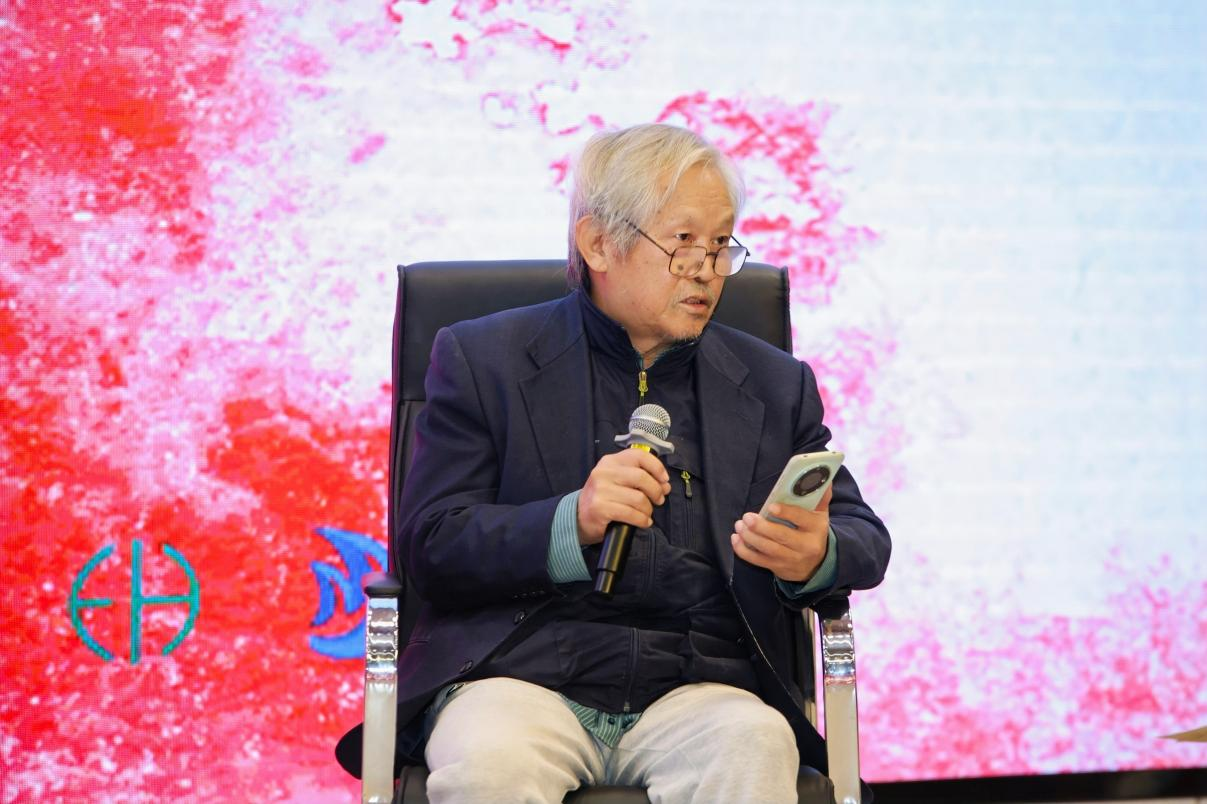
和谷发言
文章得失寸心知 从汉代文化重建看今日文风译风
谈及历史叙事的“在场性”,穆涛将目光投向汉代——中国文化大一统的关键节点。他指出,汉代既承续先秦诸子百家的思想脉络,又兼容楚地巫风的浪漫与边地文化的豪迈,最终构建起独具特色的文化认知体系。他认为,汉代文学的繁荣,本质上是中华文化认识力的觉醒。回溯历史,秦代焚书令曾致使海量文化典籍湮灭,而汉代自开国起,便耗时150余年推进中华文化经典的抢救与修复工程。这一过程不仅将“五经”确立为核心文化典籍,更开创性地建立了以儒家经典为内核的公务员选拔制度,为治理体系注入中华智慧。
反观当下文坛与译界,穆涛批评了部分创作与翻译刻意求新、背离朴素传统的倾向,并以“须刨套装”(注:指剃须刀套装,因不恰当翻译导致难以理解)为例,强调文化传播既要尊重原作本真,更需秉持对历史的敬畏之心。
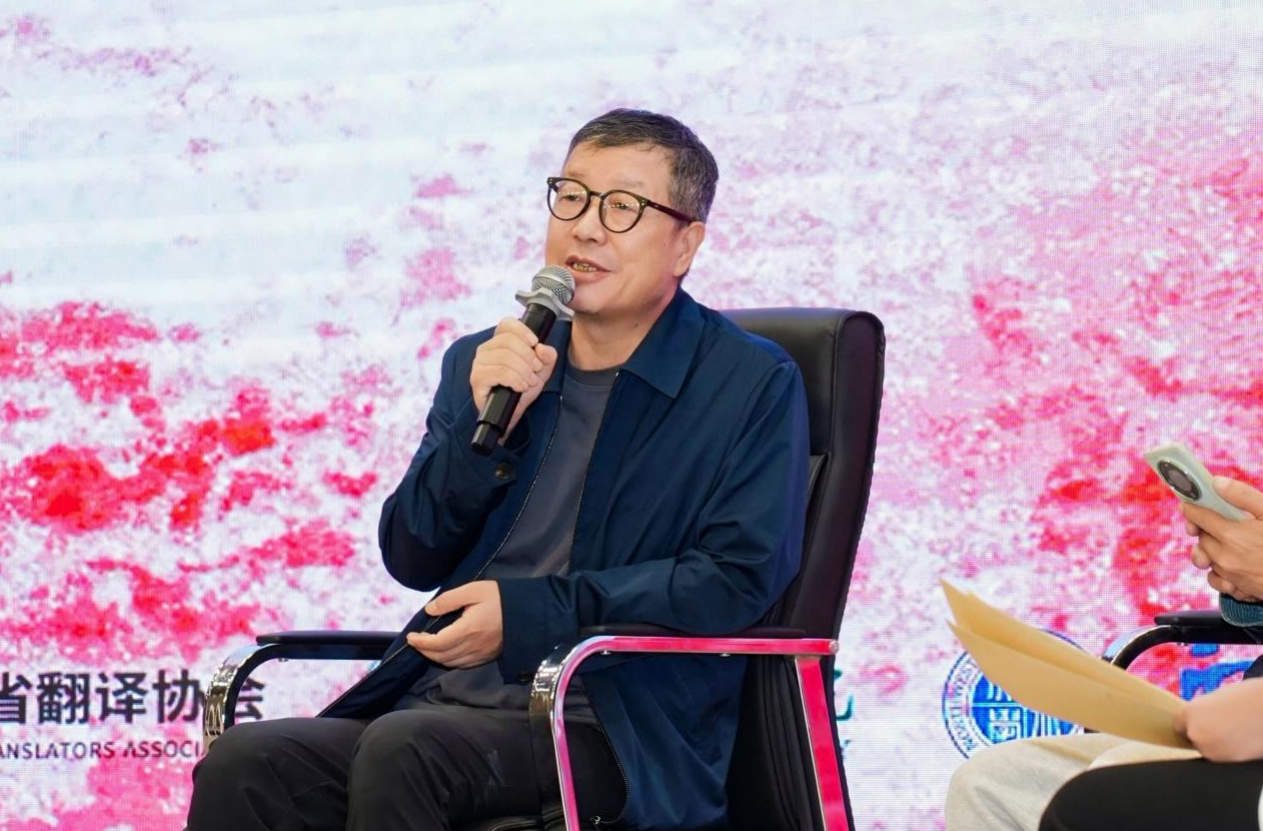
穆涛发言
乐观进取、实事求是、英勇无畏 一个英国人心中的延安精神
英籍翻译家罗宾・吉尔班克结合自身在陕西十余年的生活经历与学术积淀,分享了对红色文化的见解。他指出,延安精神从来不是抽象口号,而是深深扎根于普通民众的坚韧意志与创新智慧之中。他援引美国记者史沫特莱等国际友人的在华经历,认为即便这些友人未曾直接使用“延安精神”的表述,其行动与奉献早已跨越国界与文化隔阂,真切诠释了这一精神的核心要义。
罗宾认为,乐观进取、实事求是与革命的英雄主义等精神在当今仍具重要价值。作家柳青曾让国际友人带走中国的一抔土、一粒石,当前,越来越多走向国际的中国青年,正成为延安精神的新时代传承者。他鼓励青年走出虚拟世界,通过实地考察与真诚交流,重新与历史联结、与现实对话。
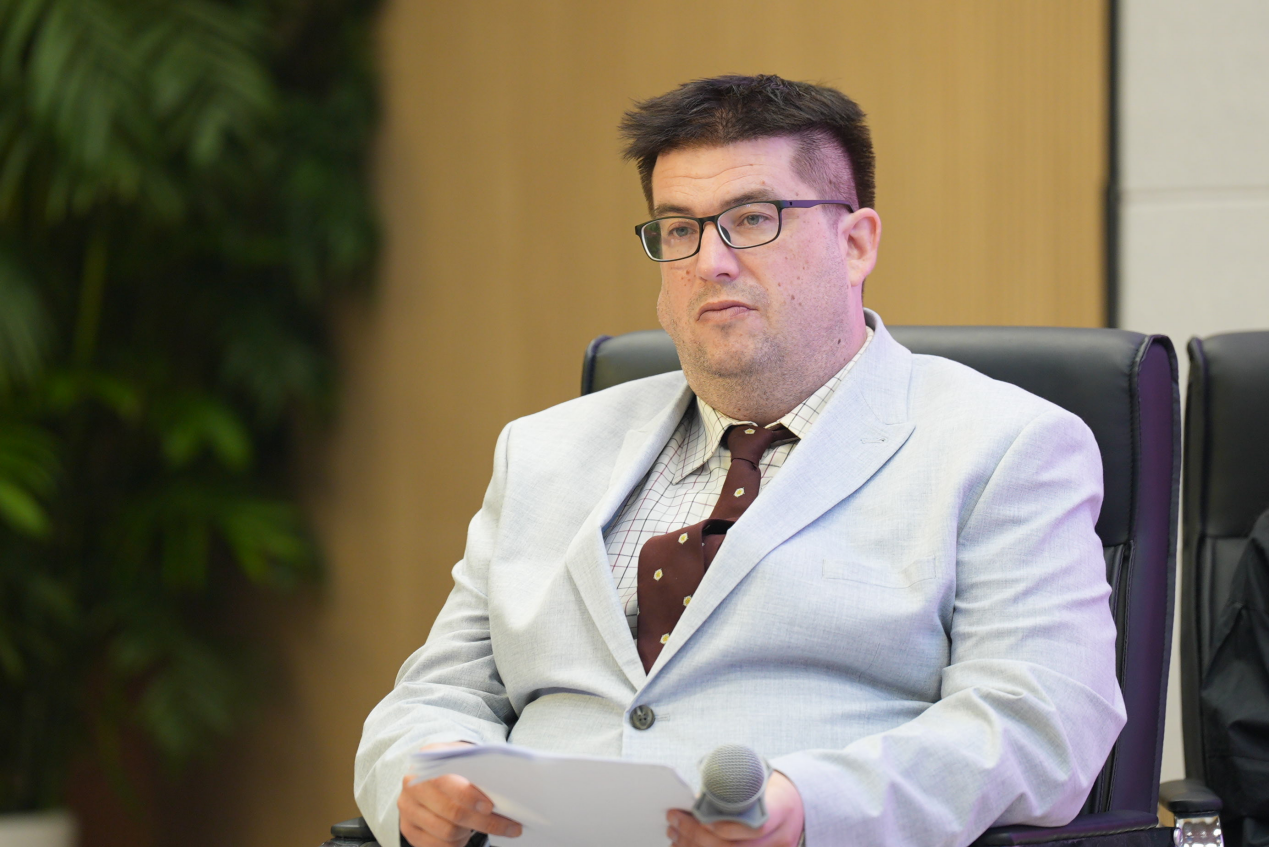
罗宾·吉尔班克发言
板凳要坐十年冷,文章不写一句空 用翻译讲述地域故事的“长期主义”
胡宗锋指出,陕西的文学作品,尤其是红色文学,具有深厚的历史背景和鲜明的地域特色,通过精准的翻译,能让世界更好地理解中国革命和当代中国的故事。当前,人工智能翻译虽然迅速发展,但仍然不能取代人,因为机器无法“交心”,对于中国文化外译,表面的翻译远远不够,必须要“用心”翻译。翻译工作者需要不断积累经验、深入理解源语言与目标语言的文化内涵,才能做到真正用心地翻译。
他指出,陕西省翻译协会、陕西省斯诺研究中心团队不仅翻译了大量的陕西文学作品,还致力于海伦·斯诺等国际友人作品的整理和翻译,为中外文化交流作出贡献。陕西文学尤其是红色文学作品走出去的秘诀是,既要扎根地域文化,更要融通世界共情,让黄土地的心跳通过翻译成为世界听得见的中国声音。
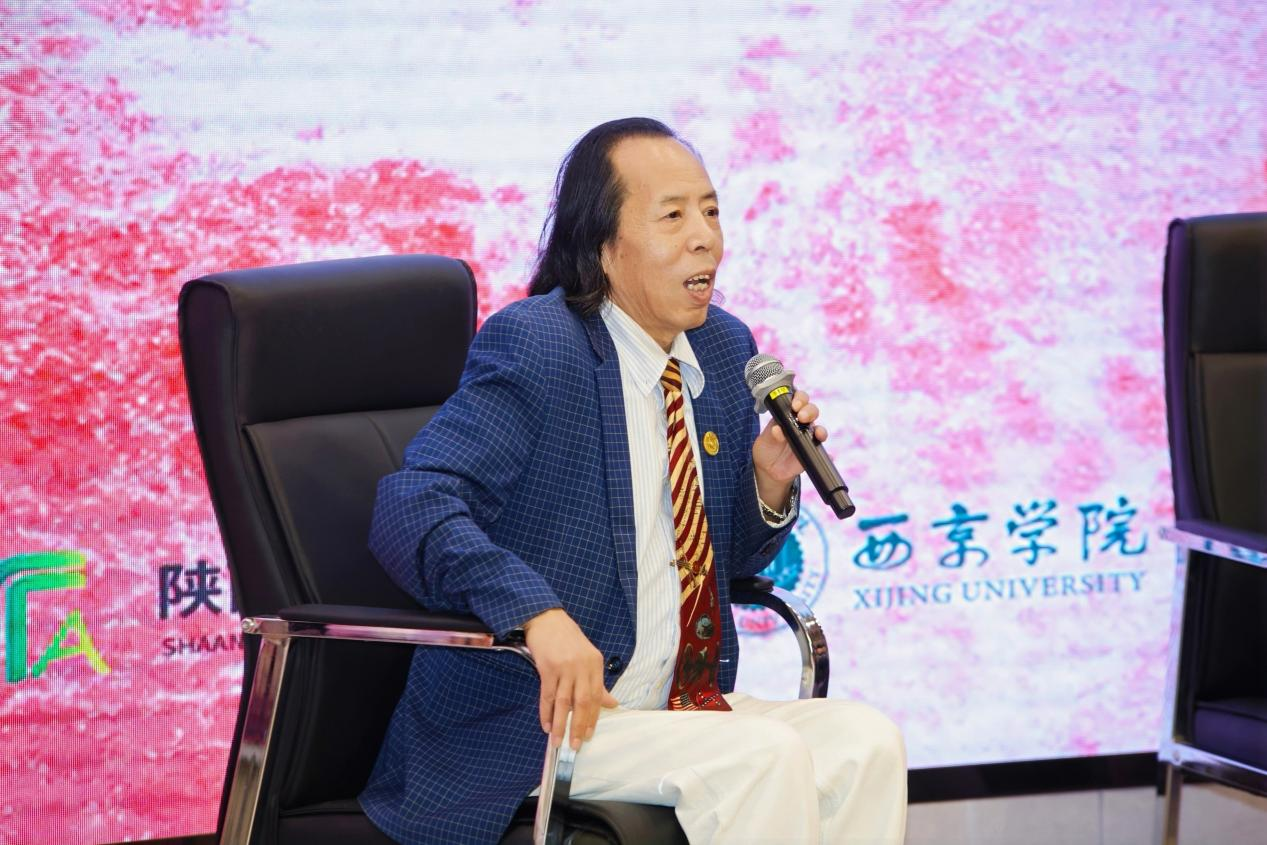
胡宗锋发言
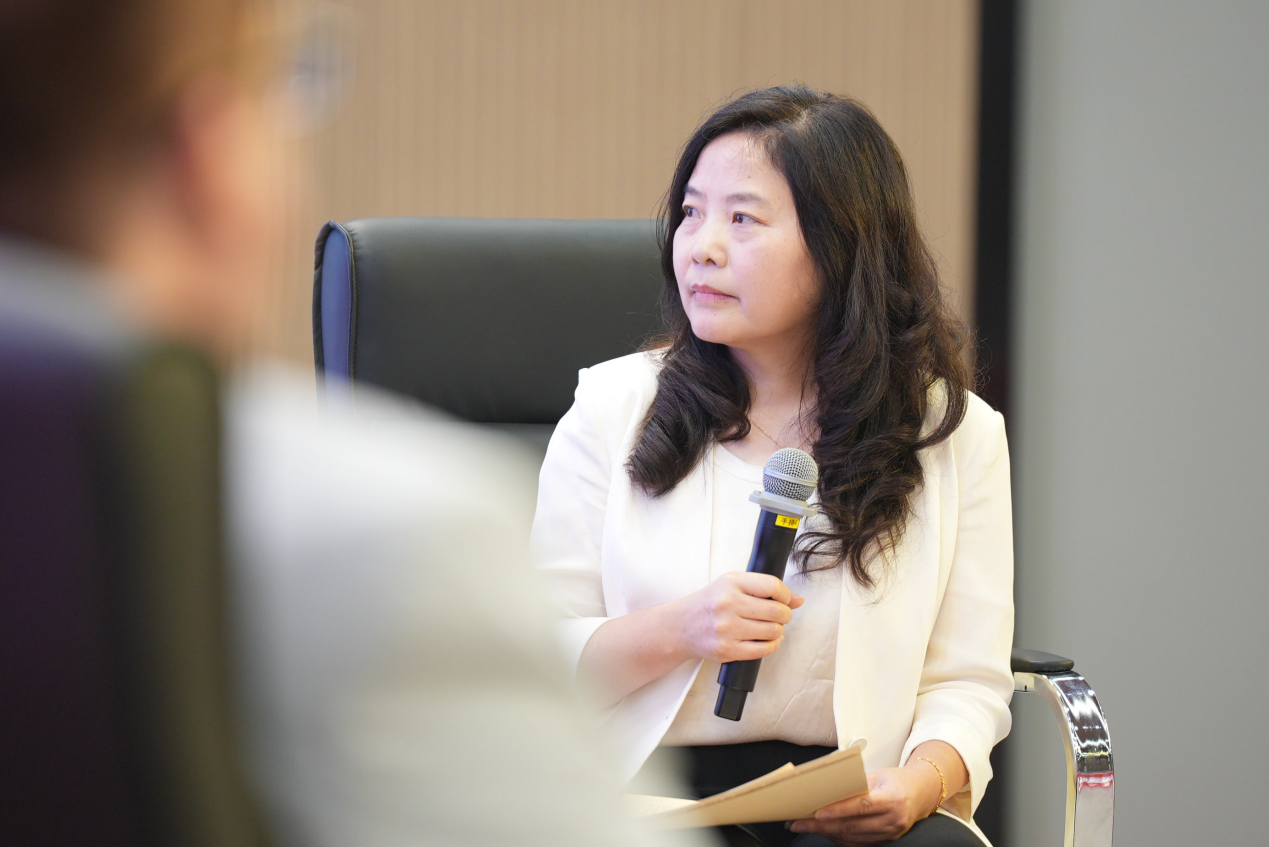
苏蕊主持访谈
本次活动由中国翻译协会、陕西省翻译协会、西京学院、西北大学、陕西师范大学、陕西省斯诺研究中心联合策划举办,中央广播电视总台CGTN提供媒体支持。近50名中国翻译协会及陕西省翻译协会会员到场参加活动,约1.2万观众在线观看直播。
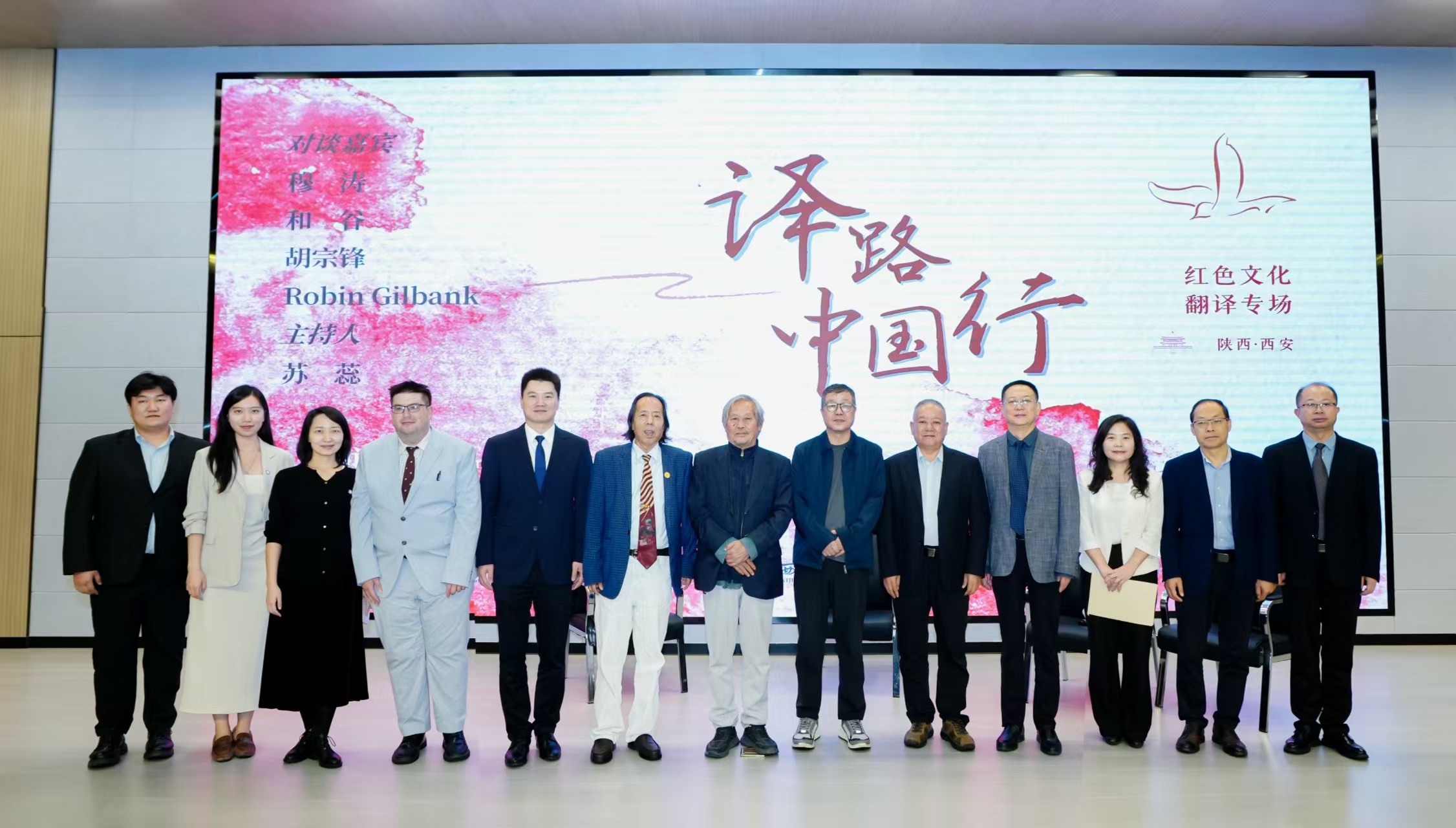
现场合影
“翻译中国 拥抱世界——译路中国行”系列活动将继续依托中国翻译协会“译介工程”,挖掘地方特色翻译主题,聚焦底蕴深厚的中国历史故事、反映中国现当代发展成就的时代故事、具有特色的地域文化故事以及各垂直领域的专业故事,以译为媒,打造一系列精品访谈与交流活动,为精准传播中国声音、深度赋能文化出海贡献译界力量。














 官方微信
官方微信 官方微博
官方微博